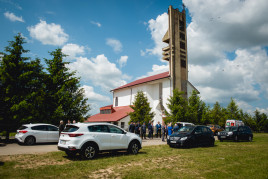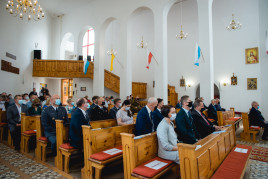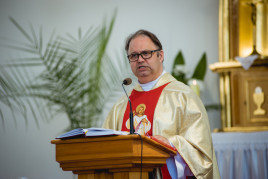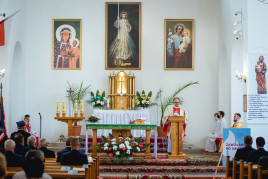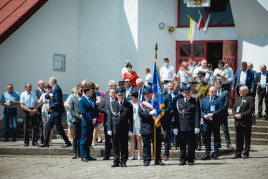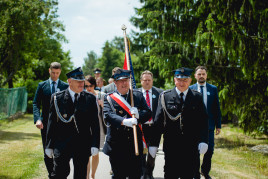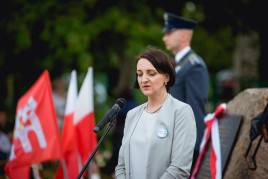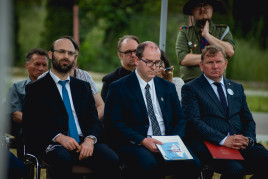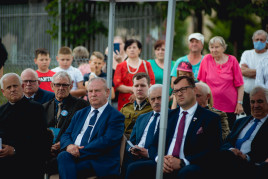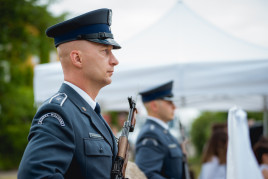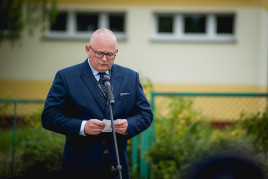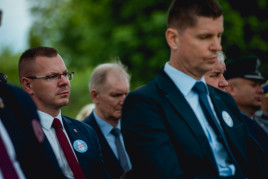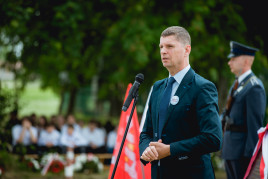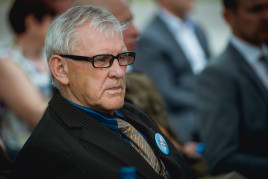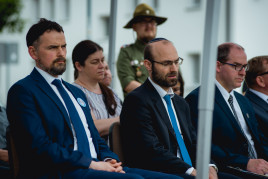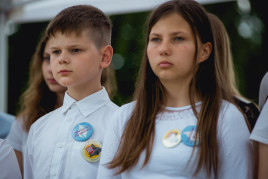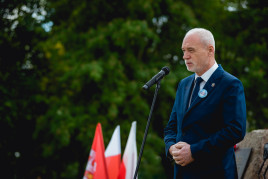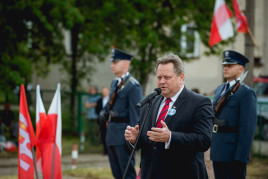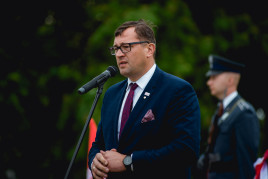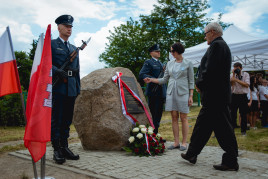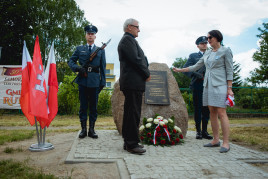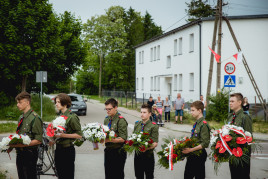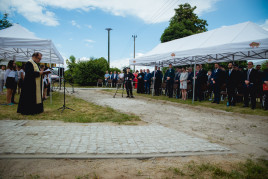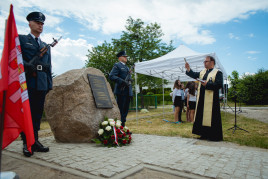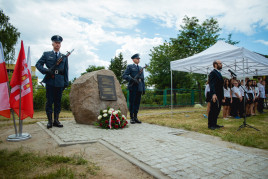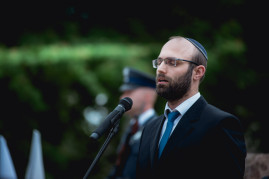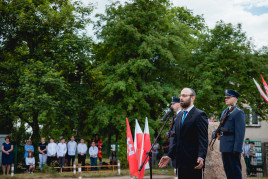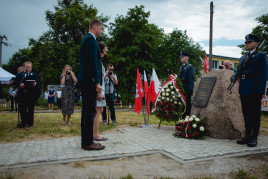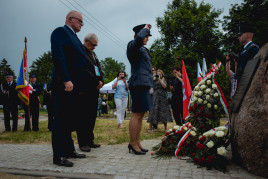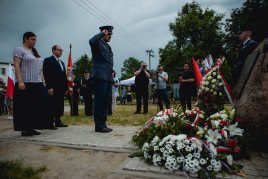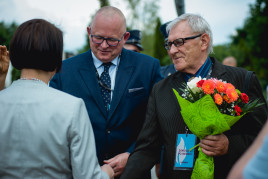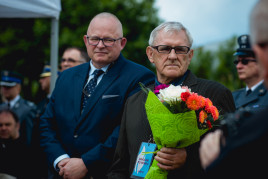A Commemoration of Piotr Kościelecki - Instytut Pileckiego
A Commemoration of Piotr Kościelecki
As part of the 18th commemoration in the “Called by Name” project, we honored Piotr Kościelecki, who was murdered by the Germans for helping Jews during the occupation. We also honored the murdered Jews, whose names remain unknown.
Piotr Kościelecki lived alone on the outskirts of the village of Grądy-Woniecko. His wife, Zofia née Pojmańska, had died before the war, and his son Jan lived probably in the nearby village of Wizna. Kościelecki’s house was situated by the forest, close to a peat bog. Piotr earned his living by working a small farm. When the Germans commenced the liquidation of local ghettos towards the end of 1942, many Jews attempted to escape and were looking for shelter. Perfectly aware of the death penalty imposed on such actions, Kościelecki aided a few fugitives, providing them with food and shelter in a hayloft on his premises.
On 21 November 1943, some German soldiers – who were on a rehabilitation leave and were staying in the nearby manor house in Grądy-Woniecko – went hunting. While tracking the animals, they discovered numerous footprints around the farmstead of Piotr Kościelecki, which prompted them to search it. Kościelecki was not at home that day: “Upon noticing the approaching Germans, the Jews panicked. Since the owner was absent, two of them hid in his house. They were discovered at once and shot dead despite mounting resistance. The third Jew was shot on the run, some 100–200 meters away from the house. The rest, including one woman, managed to flee. The surviving testimonies do not provide enough facts for the reconstruction of further events,” says Marcin Panecki, a historian from the Pilecki Institute.
On the following day, ten German soldiers from the manor house in Grądy-Woniecko and eight gendarmes from the station in Rutki arrived at Kościelecki’s farm. The commandant of the gendarmerie led Kościelecki out of the house, beating him with a club. The Polish neighbors were ordered to dig a grave for the bodies of the previously murdered Jews and to commence demolition of the farm buildings. Kościelecki was led to a nearby haystack and murdered there with two shots to the head. He was buried together with the Jewish fugitives. On orders from the Germans, the house was demolished and all valuable items were transported to the gendarmerie station in Rutki. The body of 61-year-old Piotr was later exhumed by his son Jan and buried in the parish cemetery in Wizna.
The commemoration of Piotr Kościelecki, which was held almost 80 years after his death, took place on 9 June in Grądy-Woniecko. "We are here today to honor Piotr Kościelecki for his bravery – he overcame the fear that constituted the fundamental element of the German policy of terror. We also wish to remember the murdered Jews, whose names we do not know" – a fragment of the speech by Dr Wojciech Kozłowski, director of the Pilecki Institute.
It began with a holy mass in the Church of Divine Mercy, celebrated by Rev. Krzysztof Krajewski.
Next, a plaque devoted to the memory of Piotr Kościelecki and the unknown Jews whom he helped was unveiled in front of the Cpt. W. Raginis Elementary School in Grądy-Woniecko. Rabbi Oriel Zaretsky, who was also present at the commemoration, recited the Kaddish prayer for the deceased.
"I don’t know how to describe this kind of hatred. I simply don’t know. I have no words. This has been truly difficult, especially for the family, who is with us today, and who had to wait for many years after the war for the commemoration of these local heroes", said Prof. Magdalena Gawin, Deputy Minister of Culture, National Heritage and Sport.
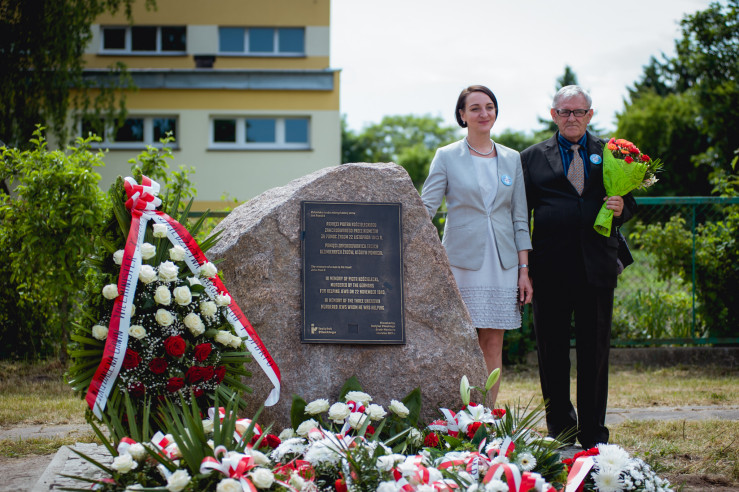
The event was attended by the residents of Grądy-Woniecko, including pupils at the local elementary school, as well as other guests, among them the secretary of state at the Ministry of Education and Science, Dariusz Piontkowski; Polish senator Marek Adam Komorowski; and MPs Jarosław Zieliński and Stefan Krajewski. The co-organizers of the event were the Pilecki Institute with director Dr. Wojciech Kozłowski and deputy director Anna Gutkowska, as well as the Ministry of Culture, National Heritage and Sport, the head of the Rutki commune Dariusz Sławomir Modzelewski, and the head of the Zambrów District Stanisław Władysław Ożlański.
